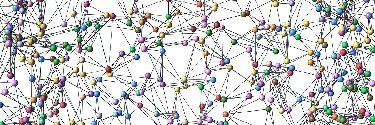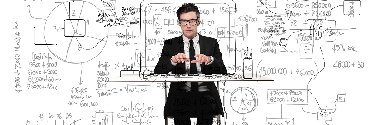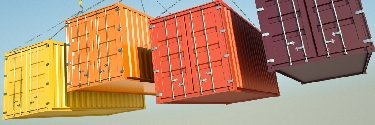Database management
As the volume of business data has grown, database management has become vital to data optimization and security. Database management are processes that ensure proper application performance, avoid compliance risk and protect valuable business data. Read database management strategies to make sure data is controlled throughout its lifecycle, from creation to deletion.
Top Stories
-
News
05 Feb 2026

Databricks launches PostgreSQL Lakebase to aid AI developers
Resulting from the $1B acquisition of Neon, the database built for AI workloads -- including separate compute and storage -- is now integrated with the vendor's broader platform. Continue Reading
By- Eric Avidon, Senior News Writer
-
Feature
30 Jan 2026

Building a strong data analytics platform architecture
Data analytics platforms are crucial for information-driven enterprises. With the right architecture, organizations can gain meaningful insights and gain a competitive edge. Continue Reading
-
Definition
13 Nov 2018

Azure Data Studio (formerly SQL Operations Studio)
Azure Data Studio is a Microsoft tool, originally named SQL Operations Studio, for managing SQL Server databases and cloud-based Azure SQL Database and Azure SQL Data Warehouse systems. Continue Reading
-
Feature
31 Oct 2018

The most useful new features in Microsoft SQL Server 2019
SQL Server 2019 includes welcome new features, particularly updates to its indexing and high availability capabilities and added SQL Server on Linux functionality. Continue Reading
By -
Quiz
30 Oct 2018

SQL vs. NoSQL: What do you know about the database designs?
The decision to use a SQL database or a NoSQL database can be made wisely only if the ins and outs of both are understood. See how well you know the database architectures. Continue Reading
By -
Feature
23 Oct 2018

Neo4j graph database targets AI use cases, performance
The Neo4j graph database is poised for use in AI applications, in which understanding data can stymie efforts. Recent updates target AI needs and performance issues. Continue Reading
By -
News
12 Oct 2018

MarkLogic Data Hub Service aims to ease cloud use of NoSQL DBMS
MarkLogic rolled out a cloud-service version of its NoSQL database management system, a move designed to make the technology more cost-effective for cloud users. Continue Reading
By- Craig Stedman, Industry Editor
-
Tip
17 Sep 2018

4 strategies to beat the SQL Server 2008 support cutoff
The looming end of SQL Server 2008 extended support should spur database teams into action. Consider these four options to extend security updates or migrate your aging SQL Server systems. Continue Reading
-
News
04 Sep 2018

Graph processing gives credit analysis firms an edge
A graph database startup's parallel loading, processing and querying combine to deliver real-time data for fintech firms that offer fast credit evaluations online. Continue Reading
By -
Tip
30 Aug 2018

SQL Server high availability best practices in the cloud
The cloud isn't immune to system failures. You can increase database uptime and prevent data losses with these high availability best practices for SQL Server in the cloud. Continue Reading
-
Feature
16 Aug 2018

Open source RDBMS uses spurred by lower costs, cloud options
Open source technologies have become more capable alternatives to mainstream relational databases for cost-conscious users -- and the cloud makes them more accessible. Continue Reading
By -
Tip
16 Aug 2018

2 ways to attach SQL Server database files to Linux containers
SQL Server files can be stored outside of Docker containers in host directories or volumes. Here's how to set up SQL Server on Linux databases and attach them to containers. Continue Reading
By -
Feature
02 Aug 2018

Open source DBMS software gains foothold in enterprise IT
Open source databases are increasingly making their way into corporate IT environments, says Gartner analyst Merv Adrian in a Q&A. But some care is required. Continue Reading
By- Craig Stedman, Industry Editor
-
Tip
24 Jul 2018

How to attach databases to custom SQL Server containers
Deploying SQL Server in Docker containers for production applications typically requires custom containers. Here are guidelines on how to attach databases to them. Continue Reading
By -
Tip
17 Jul 2018

Six sample databases for SQL Server and how to find them
SQL Server sample databases are useful for test and dev, but they can be difficult to parse. Use this SQL database sample overview to decide which to use and how to access them. Continue Reading
By -
Tip
16 Jul 2018

A quick tutorial on SQL Server maintenance plans
SQL Server maintenance plans get a bad rap, but for DBAs who need a simple way to maintain databases, Microsoft's built-in tools are a good place to start. Continue Reading
-
Feature
09 Jul 2018

eHarmony hooks up with Redis NoSQL database for hot storage
The Redis key-value store finds use in a system to match would-be romantic partners on dating site eHarmony, which employs a variety of NoSQL databases to make love click online. Continue Reading
By -
Tip
02 Jul 2018

The benefits of columnar storage and the Parquet file format
What's behind Apache Parquet's growing popularity? It may be the file format's columnar storage orientation, which leads to benefits including improved query performance. Continue Reading
By- David Loshin, Knowledge Integrity Inc.
-
News
27 Jun 2018

MongoDB 4.0, Stitch aim to grow NoSQL apps in cloud, on-prem
NoSQL vendor MongoDB upgraded its database software with ACID support, while also releasing a serverless platform intended to simplify application development. Continue Reading
By- Craig Stedman, Industry Editor
-
Answer
26 Jun 2018

What's the difference between DDL and DML?
What's the difference between DDL and DML? Get the answer and see examples of data manipulation language and data definition language commands for SQL databases. Continue Reading
By- Bridget Botelho, Editorial Director, News
-
Feature
11 May 2018

GPU databases bring greater parallelism to big data processing
GPU databases offer a new way to process data. 451 Research analyst James Curtis discusses where they fit in big data applications, particularly for parallel processing. Continue Reading
By -
Feature
08 May 2018

CockroachDB database wagered on for scalability boost, GDPR
CockroachDB is an open source distributed database designed for processing on a global scale, a need that online gambling company Kindred Group hopes it can meet. Continue Reading
By -
Tip
19 Apr 2018

Why running SQL Server on Docker is no longer frowned upon
Microsoft now lets SQL Server databases run in Docker containers, a capability that depends on using volumes to store data in a persistent way outside the containers. Continue Reading
By -
Feature
18 Apr 2018

What the Microsoft GDPR compliance toolkit offers for SQL Server
The set of GDPR compliance tools that Microsoft offers for SQL Server is designed to make it easier for users of the database software to adhere to the EU's new data rules. Continue Reading
- 09 Apr 2018
-
Feature
16 Feb 2018

Hyperledger Fabric offers path to enterprise blockchain future
Blockchain arose from bitcoin, but it's looking to find a place in the enterprise. Frameworks like Hyperledger Fabric could smooth out the technology's rough side for business uses. Continue Reading
By -
News
16 Feb 2018

MongoDB 4.0 takes ACID transactions to multi-document level
MongoDB is taking a deeper step into SQL-style processing waters with a 4.0 update that brings increased support for ACID-compliant transactions to its NoSQL database. Continue Reading
By -
Feature
21 Dec 2017

How SQL Server containers in Docker can ease database deployment
Docker containers can make the SQL Server deployment process more efficient and flexible. Here's what they are and how to get started on creating containers for SQL Server databases. Continue Reading
-
Feature
19 Oct 2017

NewSQL databases rise anew -- MemSQL, Spanner among contenders
The NewSQL database was almost hidden when Hadoop and NoSQL arose. Now, as more big data teams move toward production uses, MemSQL, Cloud Spanner and similar products may get a second look. Continue Reading
By -
Definition
20 Feb 2017

Microsoft SQL Server Management Studio (SSMS)
Microsoft SQL Server Management Studio (SSMS) is an integrated environment to manage a SQL Server infrastructure. Continue Reading
-
Buyer's Guide
13 Feb 2017

How to select the best DBMS software: A buyer's guide
Learn how to evaluate and buy the best DBMS software for your organization. Continue Reading
-
Feature
10 Feb 2017

A look at the leading operational database management systems
The market for operational DBMS products can be confusing, especially with so many choices. But knowing your application requirements can help point you in the right direction. Continue Reading
By- Craig S. Mullins, Mullins Consulting
-
Tip
19 Jan 2017

Options for scaling out SQL Server applications to boost workloads
Scaling out a database to meet the needs of a heavy processing workload can be a challenge. Here are details on the SQL Server scalability methods available to ease the process. Continue Reading
By -
Feature
05 Dec 2016

Microsoft SQL Server 2016 relational DBMS overview
Microsoft SQL Server 2016 for Windows comes in four editions, with updates that include a new stretch database feature, Polybase, dynamic data masking and more. Continue Reading
By- Craig S. Mullins, Mullins Consulting
-
Feature
08 Jul 2016

Exploring the features of Oracle Enterprise Manager 13c
Cloud Control, a feature of Oracle Enterprise Manager 13c, can be used to monitor and manage databases, middleware, infrastructure and hardware running on-premises or in the cloud. Continue Reading
By- Craig S. Mullins, Mullins Consulting
-
Feature
06 Jul 2016

Inside BMC's database performance tools for DB2 for z/OS
BMC offers several tools to help DBAs manage and prevent critical performance issues in DB2 for z/OS, as well as monitoring options for other vital mainframe subsystems. Continue Reading
By- Craig S. Mullins, Mullins Consulting
-
Feature
17 Jun 2016

Examining the functions and features of database performance tools
To help you determine which tools your organization needs, it's important to review the primary features and functionality of the three database performance tools categories. Continue Reading
By- Craig S. Mullins, Mullins Consulting
-
Feature
08 Jun 2016

Three indicators that could signal database performance issues
Database performance monitoring and management tools can be used to mitigate issues and help organizations be more proactive, so they can avoid performance problems and outages. Continue Reading
By- Craig S. Mullins, Mullins Consulting
-
Feature
12 May 2016

What you need to know about database performance software
Database performance software identifies bottlenecks and points of contention, monitors workload and throughput, and manages system and DBMS resource usage. Continue Reading
By- Craig S. Mullins, Mullins Consulting
-
Feature
14 Aug 2015

Types of NoSQL databases and key criteria for choosing them
In a book excerpt, consultant Dan Sullivan offers insights into how to select the right type of NoSQL database for the right application in your organization. Continue Reading
By -
Feature
07 Aug 2015

SAP HANA in-memory DBMS overview
SAP HANA is an in-memory DBMS and application platform designed to handle high transaction rates and complex queries using one data copy. Continue Reading
By- Craig S. Mullins, Mullins Consulting
-
Feature
31 Jul 2015

Redis open source DBMS overview
The Redis open source DBMS provides a highly scalable data store that can be shared by multiple processes, applications or servers. Continue Reading
By- Craig S. Mullins, Mullins Consulting
-
Feature
27 Jul 2015

MySQL open source RDBMS overview
Developers, database administrators and DevOps teams use MySQL open source RDBMS to more easily operate next-generation applications in the cloud. Continue Reading
By- Craig S. Mullins, Mullins Consulting
-
Feature
11 Jun 2015

Which in-memory DBMS best fits your company's needs?
Database expert Craig S. Mullins examines some top in-memory DBMS software offerings to help you determine which is the best fit for your organization. Continue Reading
By- Craig S. Mullins, Mullins Consulting
-
Feature
04 Jun 2015

Oracle Database 12c relational database management system overview
Oracle Database 12c delivers strong performance for mission-critical workloads, with features and functionality for diverse processing needs and requirements. Continue Reading
By- Craig S. Mullins, Mullins Consulting
-
Feature
30 Apr 2015

Which relational DBMS is best for your company?
Database expert Craig S. Mullins examines the top relational database management system software to determine which best fits your organization. Continue Reading
By- Craig S. Mullins, Mullins Consulting
-
Feature
17 Apr 2015

How to determine if an in-memory DBMS is right for your company
Database expert Craig S. Mullins examines the pros and cons of the in-memory database management system, and the criteria you should consider during the request-for-proposal and evaluation period. Continue Reading
By- Craig S. Mullins, Mullins Consulting
-
Feature
27 Mar 2015

Key considerations for determining if a NoSQL DBMS meets your IT needs
NoSQL represents the fastest-growing type of DBMS being adopted today. Is it right for you? Continue Reading
By- Craig S. Mullins, Mullins Consulting
-
Feature
24 Feb 2015

Key criteria for deciding if a relational DBMS meets your IT needs
For many organizations, a relational database management system will get the job done; others need to keep looking to fulfill their needs. Continue Reading
By- Craig S. Mullins, Mullins Consulting
-
Feature
22 May 2014

Former shadow IT worker helps bring analytics data into the light
Ryan Fenner worked in a shadow IT unit at Union Bank for years. Now he's helping lead an IT effort to better manage BI data created in those shadows. Continue Reading
By- Craig Stedman, Industry Editor
-
News
13 Apr 2011

From the Editors: Database consolidation and standardization 101
If you’re thinking about embarking on a database consolidation or standardization project, make sure you know the technical, cultural and skill-set issues that can arise. Continue Reading
By- Justin Aucoin, Associate Site Editor
-
News
26 Nov 2010

Creating a database strategy that can adapt to changing business needs
Crafting a successful database strategy requires technology flexibility, the right skill sets and a strong focus on application requirements, according to IT pros and analysts. Continue Reading
-
News
10 Nov 2010

Emerging database technologies hit DBMS mainstream, add to choices
Emerging database technologies such as column-based database software, NoSQL databases and Database as a Service (DaaS) platforms are starting to make a splash in the IT market. Continue Reading
-
Answer
24 Mar 2010

What are aggregate tables and aggregate fact tables?
Here you'll see examples and read definitions of aggregate tables and aggregate fact tables. You'll also learn how to use aggregate tables in data warehouses and databases. Continue Reading
By- Mark Whitehorn, University of Dundee
-
Answer
24 Mar 2010

Data warehouse concepts: Data flow and sending data to source systems
Learn about a data warehouse concept: data flow. And find out if it's a good idea to flow data from your data warehouse or data marts back to source systems. Continue Reading
By- Mark Whitehorn, University of Dundee
-
Answer
07 Oct 2009

What is the difference between a logical and physical warehouse design?
What's the difference between logical design and physical design? Get an expert's take, plus learn about three data warehouse models -- the user model, physical model and logical model -- and how they differ. Continue Reading
By- Mark Whitehorn, University of Dundee
-
Feature
27 Jul 2009

Executing SQL statements using prepared statements and statement pooling
In this database tutorial, find out about executing SQL statements using prepared statements and statement pooling. Learn what a statement pool is and how to retrieve long data types efficiently. Continue Reading
-
Feature
27 Jul 2009

Static SQL vs. dynamic SQL for database application performance
Learn the difference between static SQL vs. dynamic SQL and the benefits and drawbacks of each for database application performance. Get a definition of stored procedure, find out about database drivers and wire protocol database drivers and how the network affects database performance. Continue Reading
-
Answer
24 Jun 2009

How to select an MPP database: DB2 vs. Teradata
Should you run a massively parallel processing (MPP) database with DB2 or Teradata? Find out how to compare DB2 vs. Teradata and how to choose a database system and with advice from a data warehouse expert. Continue Reading
By- Mark Whitehorn, University of Dundee
-
Feature
10 Jun 2009

Advantages of the multidimensional database model and cube modeling
Discover the advantages of the multidimensional database model and find out how data warehouse cube modeling, data restricting and data slicing work. Learn the role meta-data plays and get a definition of functional dependency. Continue Reading
-
Feature
10 Jun 2009

Data warehouse architectures, concepts and phases: What you need to know
This tutorial explains the different types of data warehouse architecture including bus, federated and hub-and-spoke. Learn about ETL processes and data staging and data warehouse phases. Continue Reading
-
Answer
14 Apr 2009

Defining dimensional vs. normalized database design, dimension vs. fact tables
Find out if your existing database is in dimensional style or normalized database design style, learn the benefits and drawbacks of fact-dimension and normalized database schemas and read a comparison of dimension tables vs. fact tables. Continue Reading
By- Mark Whitehorn, University of Dundee
-
Answer
23 Sep 2008

Definition of data abstraction and data abstraction layers
Data abstraction simplifies database design. Learn the definition of data abstraction and find out the three formal kinds of abstraction layers, from a database expert. Continue Reading
By- Mark Whitehorn, University of Dundee
-
Answer
17 Apr 2008

Can a dimension table be a fact table for another data mart?
Find out if a dimension table can be a fact table for another data mart -- and get an explanation of the answer. Continue Reading
By- Mark Whitehorn, University of Dundee
-
Feature
21 Nov 2005

Types of DBAs
DBAs can take on many different roles. This excerpt from the "Database administration: The complete guide to practices and procedures" takes a closer look at different types of DBAs. Continue Reading
-
Tip
19 May 2005

What is the difference between DB2 UDB and DB2 OS/390?
Database expert Craig Mullins explains the differences between DB2 UDB and DB2 OS/390. He begins by clarifying that the two are comprised of completely different code bases. Continue Reading
By- Craig S. Mullins, Mullins Consulting